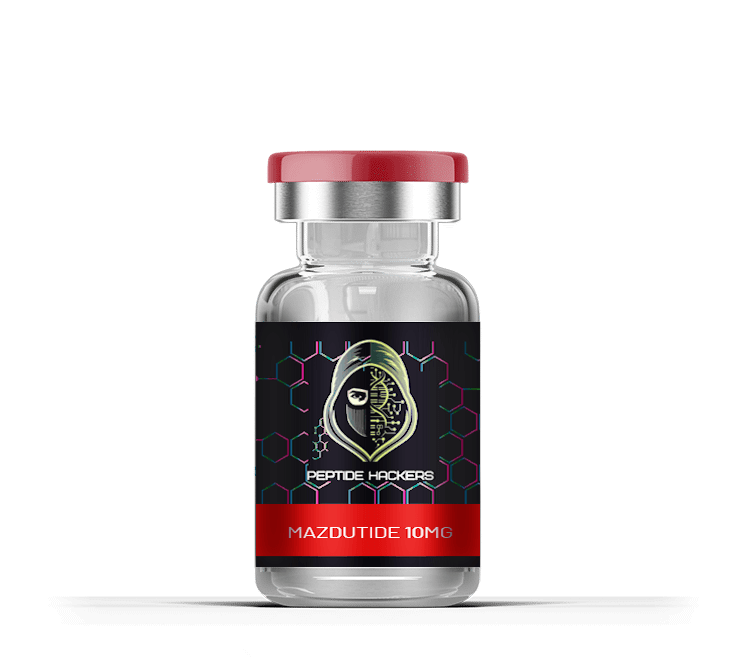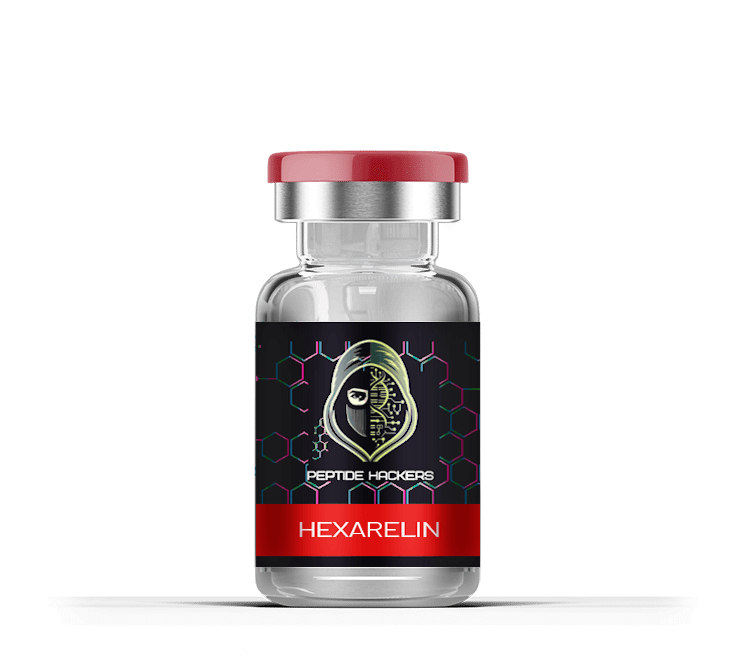Mazdutide Research Compound: Published Data Review
Shipping: We offer reliable shipping options both domestically and internationally. All orders are processed within 1-2 business days. Shipping times vary depending on your location, and you will receive a tracking number once your order has shipped. Please note that international customers are responsible for ensuring that peptide products comply with their country’s import regulations.
Returns: Due to the specialized nature of our products, we do not accept returns or exchanges. If you receive a damaged or incorrect item, please contact our customer support team within 7 days of delivery. We will work to resolve the issue as quickly as possible, either by sending a replacement or providing a refund if applicable. For additional questions about shipping or returns, please reach out to our support team.
CRITICAL RESEARCH DISCLAIMER
FOR LABORATORY RESEARCH USE ONLY. NOT FOR HUMAN CONSUMPTION. NOT FOR VETERINARY USE.
All information on this page is for educational and laboratory research purposes only. This content discusses published clinical trial data and does NOT constitute medical advice or recommendations for human use. We are not licensed medical professionals.
Mazdutide Research Compound: Published Clinical Trial Data Review

Mazdutide (also known as IBI362 or LY3305677) is a dual receptor agonist research compound that has been studied in clinical trials for effects on GLP-1 and glucagon receptors[12,13]. This research compound has been investigated in laboratory settings and clinical research populations.
FOR LABORATORY RESEARCH USE ONLY. NOT FOR HUMAN CONSUMPTION.
Published Research Findings
Clinical trials documented various observations in research populations through dual GLP-1/glucagon receptor mechanism studies. Research examines different mechanisms compared to traditional compounds studied for appetite effects.
Published research documented various observations in study populations. Phase 3 trials are currently underway. Research data comes from controlled clinical studies in specific populations.
All information is for educational and research purposes only. NOT FOR HUMAN USE.
What is Mazdutide Research Compound?
Mazdutide (IBI362) represents a research compound utilizing dual GLP-1/glucagon receptor mechanisms studied in laboratory settings. This investigational compound has been examined in clinical research populations.
Research Mechanism Overview:
- Glycemic Research – Studies examined insulin and glucose markers in research populations
- Metabolic Research – Research documented caloric and energy markers in studies
- Parameter Research – Studies examined various metabolic markers in experimental populations
Research compound only. For educational purposes. NOT FOR HUMAN USE.

The dual agonist approach has been studied in research settings comparing different receptor mechanisms in laboratory models.
Research observations only. For educational purposes.
Research Mechanism Studies
Dual Receptor Research (GLP-1 & Glucagon)
GLP-1 Receptor Research
Research examines GLP-1 component mechanisms in laboratory studies including glucose-dependent markers, gastric observations in studies, glucagon markers in research, and appetite mechanisms in experimental populations.
Glucagon Receptor Research
Laboratory studies examine glucagon receptor mechanisms including energy markers in research, hepatic observations in studies, and tissue preservation studies in experimental models.
All mechanisms studied in laboratory research only. NOT FOR HUMAN USE.
Research Significance: The dual receptor approach has been studied in laboratory settings for different metabolic mechanisms in experimental populations.
Research data only. For educational purposes.
Published Clinical Trial Data
Research Study Observations
Clinical trials documented various observations in study populations[12]. Research examined HbA1c markers, glucose measurements, and metabolic parameters in controlled studies. Studies compared different compounds in research populations.
Research observations only. For educational purposes. NOT FOR HUMAN USE.
Published Research Data
Clinical research trials documented various observations:
Phase 2 trials documented changes ranging from baseline measurements over 24 weeks in study populations (Ji et al 2021, 2022). Research populations showed various responses in studies. Research documented different observations compared to other compounds[14].
All results are from controlled clinical research trials. NOT FOR HUMAN USE.
Research Parameters
Studies examined secondary markers in clinical trials including blood pressure parameters, lipid profiles, and hepatic markers in research populations. Research documented metabolic observations in study populations.
Research data only. For educational purposes.

Comparison with Other Research Compounds
| Research Compound | GLP-1 Studied | GIP Studied | Glucagon Research | Published Data |
|---|---|---|---|---|
| Semaglutide Research | ✅ Yes | ❌ No | ❌ No | Published data |
| Tirzepatide Research | ✅ Yes | ✅ Yes | ❌ No | Published data |
| Retatrutide Research | ✅ Yes | ✅ Yes | ✅ Yes | Published data |
| Mazdutide Research | ✅ Yes | ❌ No | ✅ Yes | Published data |
Research Comparisons: Different compounds studied in separate clinical trials examine various mechanisms. Comparative research data comes from published studies in different populations.
Comparative research data only. For educational purposes. NOT FOR HUMAN USE.
Research Safety Observations
Research Observations from Clinical Trials
Clinical trials documented various observations in study populations[18]:
- Gastrointestinal Observations – Studies documented GI effects in research populations
- Digestive Observations – Research noted various digestive markers in studies
- Other Observations – Clinical trials documented additional markers in research populations
Research observations only. For educational purposes. NOT FOR HUMAN USE.
Research Considerations
- Gastric Observations – Research documented various gastric markers in studies
- Cardiovascular Observations – Studies noted cardiovascular markers in research populations
- Long-term Research – More research necessary for long-term observations
RESEARCH EXCLUSIONS:
- Clinical trials excluded individuals with specific medical histories
- Research excluded individuals with certain conditions
- Studies excluded pregnant and lactating women (safety not established)
Research criteria only. NOT medical guidance. FOR RESEARCH PURPOSES ONLY.
All observations are from controlled clinical research studies. NOT FOR HUMAN USE.
Research Development Status
- Currently in Phase 3 clinical research trials
- Research ongoing in specific geographic regions
- Global research timeline under investigation
- Pediatric research: Studies examining safety in research populations
- Combination research: Research examining combinations with other compounds in studies
- Additional research: Studies examining various applications in research populations
Research development status only. For educational purposes. NOT FOR HUMAN USE.
Research Conclusions
Research Observations:
Published research documents several observations based on clinical trial data. The dual receptor mechanism has been studied in laboratory settings. Research compares different compounds in experimental populations. Studies examine various metabolic markers in research settings. Research differentiates different receptor mechanisms in studies.
Research observations only. For educational purposes.
Research Limitations:
Several factors warrant consideration when reviewing research. Tolerability observations documented in clinical trials. Compound not widely available pending regulatory approvals. Long-term research data still being collected. Administration methods studied in research settings. Post-marketing research data remains limited.
Research limitations only. For educational purposes. NOT FOR HUMAN USE.
Research Perspective:
Research compound represents evolution in studied mechanisms for metabolic research. Dual agonist approach shows promise in laboratory studies. Comparative research data suggests potential observations compared to other compounds in studies (Wilding et al 2021; Ghusn et al 2022).
All information is for educational and research purposes only. NOT FOR HUMAN CONSUMPTION.
Frequently Asked Research Questions
What is Mazdutide?
Mazdutide (IBI362) is a dual GLP-1/glucagon receptor agonist research compound studied in clinical trials. FOR RESEARCH PURPOSES ONLY. NOT FOR HUMAN USE.
What does research show?
Published clinical trials examined this compound in controlled research settings. Data is from scientific studies, NOT guaranteed outcomes. Research data only.
Is this compound available?
No. Only available through clinical trials. Has NOT been approved for general human use. NOT FOR HUMAN CONSUMPTION.
What are research observations?
Clinical trials documented various observations in research populations including gastrointestinal observations. Research observations only. NOT medical guidance.
How does research mechanism work?
Research examines dual receptor mechanisms in laboratory studies with combined effects on various metabolic markers. Research mechanisms only. NOT FOR HUMAN USE.
Can this be used for any condition?
No. This is a research compound NOT approved for human use. FOR LABORATORY RESEARCH ONLY.
All FAQs are for educational and research purposes only. NOT medical advice. NOT FOR HUMAN USE.
References & Further Reading
Clinical Studies on Mazdutide Research Compound
Research Study in Chinese Populations
Source: Diabetes Care
Summary: This study examines compound parameters in research populations. Research data only.Phase 2 Research Trial
Source: Nature Communications
Summary: This clinical trial examines research protocols in study populations. Research observations only.Research on Metabolic Markers
Source: PubMed Central
Summary: Research characterized observations in Chinese adults in research studies. Research data only.Research Review
Source: PubMed Central
Summary: This review summarizes published research evidence from studies. Research summary only.
All references are from published research literature. For educational purposes only.
Educational Disclaimer:
This guide is for educational purposes only and is NOT a substitute for professional medical advice. Mazdutide is a research compound studied in clinical trials and is NOT approved for general human use.
FOR LABORATORY RESEARCH USE ONLY. NOT FOR HUMAN CONSUMPTION. NOT FOR VETERINARY USE.
All information presented is based on published clinical trial data and scientific literature. This content does NOT constitute medical advice or recommendations. Always seek the advice of qualified health professionals with any questions regarding medications or medical conditions.
Your safety comes first! This is NOT for human use.
FINAL IMPORTANT DISCLAIMER
This content is for educational and informational purposes only. Mazdutide (IBI362) is sold strictly for laboratory research purposes and is NOT intended for human consumption or veterinary use.
This content does NOT constitute medical advice or recommendations. All information discusses published research studies conducted in controlled settings only.
FOR LABORATORY RESEARCH USE ONLY. NOT FOR HUMAN CONSUMPTION. NOT FOR VETERINARY USE.
Researchers must obtain proper institutional approval before conducting studies with this compound. Always ensure compliance with all applicable regulations regarding research compounds.
NOT FDA APPROVED. NOT FOR HUMAN USE. FOR RESEARCH PURPOSES ONLY.
Our Story, Our Promise
At PeptideHackers, we’re committed to advancing research by providing high-quality peptides for scientific and research purposes. We ensure the highest standards and transparency in every product, supporting your research with science-backed solutions. Welcome to PeptideHackers.
Frequently Asked Questions
-
Due to the sensitive nature of our research products, we do not accept returns or exchanges. However, if you receive a damaged or incorrect item, please contact our customer support team within 7 days of receiving your order, and we will work to resolve the issue.
-
Research peptides are short chains of amino acids designed for laboratory and scientific research purposes only. They are not intended for human or animal use.
-
Peptides should be stored in a cool, dry place. For long-term storage, refrigerate at 4°C, and for even longer preservation, freezing at -20°C is recommended.
-
Yes, we provide a Certificate of Analysis (COA) for every batch of peptides, detailing the purity and composition to ensure research quality.







